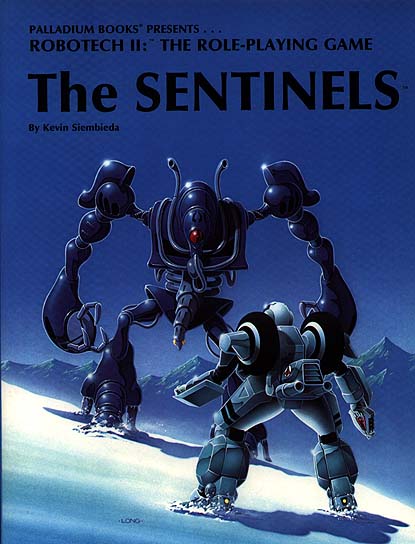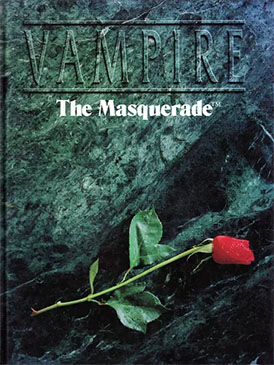The Halcyon Years (My History in Gaming, Part 2)
Previously, I wrote about my start in gaming; fumbling around but generally gaming a lot less than you might think. All that changed when I went to college in New England, where both I think both the population density and cosmopolitan nature of the place lent itself better. The college I attended actually had a school-sponsored club dedicated to playing roleplaying games as a way of encouraging non-fraternity activities. What's more, when I got there I discovered that they played a game I thought I knew, but wasn't aware had advanced three editions.
I ended up playing, and then later running, Champions 4th Ed. for over three years, often more than once a week. It's a slow game, combat-wise, especially when you've got six or so players, but this was the gaming mainstay the entire time. And I loved it. There was the Knights of New York, FUNHOUSE, Vanguard and its spin-off team Vanguard Europe.
We were a pretty mercurial group when it came to games, though, and frequently diverted ourselves with other RPG's that were big at the time. Star Wars by West End Games was such a great game that we would continually launch and re-launch brief forays into a speculative post-Return of the Jedi universe (this was before the Zahn novels came along). Most of these games had a pretty typical format: the Smuggler and His Crew battling whoever The Man happened to be while getting sucked into some Jedi-oriented subplot. I frequently was the smuggler, a PC with the goofy name Fargo Wells.
But there was one other game that happened early in my college career that left an indelible mark, although it would take me a long time to figure out that what made it great wasn't the rules, or even the players. It was the GM. That game was Robotech.
Specifically, it was Robotech: the Sentinels, which for those who are up on their nerdstream know was the Harmony Gold-based anime show that attempted to form the glue between the three unrelated TV series that Harmony Gold had merged into one product for the American audience.
Back in 1989 and 1990 no one was using the term "sandbox campaign." Most RPG's were pretty much set on doing a pre-determined plot of some sort. Even D&D had lost this quality. In fact by then D&D had become such a fetid, bloated mess that when one person in the college club admitted was playing D&D back in her old home town we acted like she had revealed that she was churning her own butter. But the GM for the Robotech campaign loved, and I mean loved Robotech. He knew all about the various shows. He owned all the Palladium books. He owned all the licensed novels. He owned books about Macross artwork from Japan. This guy had immersed himself in the Robotech universe. And his campaign had a pretty solid concept: we were a REF force left behind on Tirol while the SDF-3 explored the universe in what was the Sentinels storyline. Left behind on the planet were a few REF forces, some under the sway of the corrupt REF commander T.R. Edwards. We weren't those guys. Basically the GM laid out a couple of intriguing events (a weird telepathic but amnesiac girl, some bioroids attacking a hospital) and cut us loose. We could do whatever we wanted. Explore areas. Cause trouble with the Edwards-affiliated troops. Hunt bioroids. It was, in later parlance, a ton of player agency. And this guy had such a rich and fully-developed world in his head that we couldn't go off the page, at least not too badly.
It took me a long time to realize that the reason why players would literally stop by this guy's dormroom and say "hey, my PC wants to do this thing; let's game it out right now," wasn't because it was a Palladium game or about giant robots (I would go back to both of those concepts without the same success). It was because in that game we did whatever we wanted, and he could just purely react. Yeah, he had the deal about how Edwards was being controlled by the Invid like in the Sentinels, but I don't even think we made it that far. We spent half the time just driving around Tirol like we were in a convertible with the top down. I was still playing PC's with cornball names (e.g. Lane Mastodon, REF Scientist) but by God it was pure fun. And now I get why. When I recently took back over the 4E game, I started at least giving the players the choice of which quests they wanted to go on, a sort of flow-chart model of campaign design. But when I choose to do another game, I so want to finally do what this guy did right over 20 years ago.
One thing that I did see happen that I would probably never do, but was unmistakably cool, happened in a game of Cyberpunk 2020 that a friend of mine ran. We were a typical Cyberpunk PC group, which is to say thieves, spies, and killers who for some reason had a musician along for the ride (there's one in every group...) We had been hired to steal this thing from this corporation (I don't even remember the details, mostly because it was such a generic plot for the genre). Right before the theft took place, though, the GM arranged to meet with me so that my PC (a Fixer) could talk to one of the behind-the-scenes NPC's. The guy told me that he had heard that one of my group had sold us out.
I immediately knew who it was. There was one guy in our group who was really off. He was distinctly the bottom of the nerd totem-polem, a bizarre person with poor hygiene and a curious habit of eating an entire bowl of nothing but chick peas and black olives at every meal. Every meal. We tolerated this guy, but only just. It seemed so much in this guy's personality that he would sell out the group. I didn't tell any of the other players, though. I wanted to bring down this putz myself at the right time.
So we do the theft. Two solos (one of whom was the suspected traitor), a hacker, and me went into the building while a tech and the rockerboy waited outside in our AV-4 as a getaway vehicle. Not long after we get inside, the alarms go off, despite our having disabled them. I immediately knew that we'd been betrayed, and I drew my toy gun (we used props for this game) and pointed at the other player's head. "It's you, you bastard!" I shouted. "You sold us out! I know it!"
"Have you lost your freaking mind?" the player asked me back.
Then, we hear the two players out in the AV-4 say, "actually, that would be us. See you later." And then they said to the GM, "we fly off."
Then the four of us in the building died, one by one, as the security teams slowly took us out. The moral of the story? In morally ambiguous games, it isn't the social-inept combat monsters you need to look out for--it's the genre fiends.
The game that would finally move us out of cartoons/anime/sci-fi was the same one that changed gaming for a lot of people. Vampire: the Masquerade.
It's 1992, and we'd played all sorts of stuff at that point. Rifts. Amber. Even Fantasy Hero. The guy who ran Robotech had long since graduated and I was the old man of the group, running most of the games. We were at a gaming store one day when a couple of my friends came up to me with this game and said, "I'll buy this game for you if you'll run it."
Ann Rice's novels had become very popular at the time, and the idea of an RPG that was made up of PC's that were not part of some single team or unit but could even work against each other was a totally new concept. After I agreed, I did discover that this game didn't work for everyone. I still had guys playing vampire superheroes who only drank the blood of criminals and tried to interact with the police to solve crimes. Others just couldn't stomach the notion of a PC that wasn't innately heroic. But man, this game drew a certain kind of player in. I still remember one of the players that betrayed the group in the Cyberpunk game, a young woman, coming to the first gaming session made up in pale makeup and playing a freaky Malkavian kid. It was a level of roleplaying that none of us had done before, and we were getting into it. I could do a pretty good Machiavellian plot for a 20-year-old, and like I said, the novelty had a lot going for it.
The problem is that gamers who love a lot of drama in their roleplaying tend to have a lot of drama in their lives, and in the end it spilled over. One of the core couples of the V:tM group had a protracted, ugly break-up, and the guy in the pair decided the best way to get back at his soon-to-be-ex-girlfriend was to wreck her favorite campaign. It was such a dickish move that we basically called the game to a halt while things aired themselves out.
But around that same time my own long-term girlfriend (to whom I was actually engaged) and I broke it off, and not really wanting to be around and having more than enough credits to graduate even after only three-and-a-half years I informed the college I was leaving mid-year and told them to mail my diploma to me in May.
Of the college group, I know some of them continued gaming. The girl in the V:tM break-up couple got heavily into the Vampire LARP scene and by a curious turn of events ended up in the same city as I did as an adult, forming part of a new core group years after college. One of the players ended up contributing to several RPG's, including Scion and Ars Magica. One became a big wheel for the game EverQuest. Some like me continue gaming to this day. But all that would come later. College was probably the most heavy gaming period of my life, as I said before, and it would be a long while before I even got back up to something close to what I had then.





Comments
Post a Comment